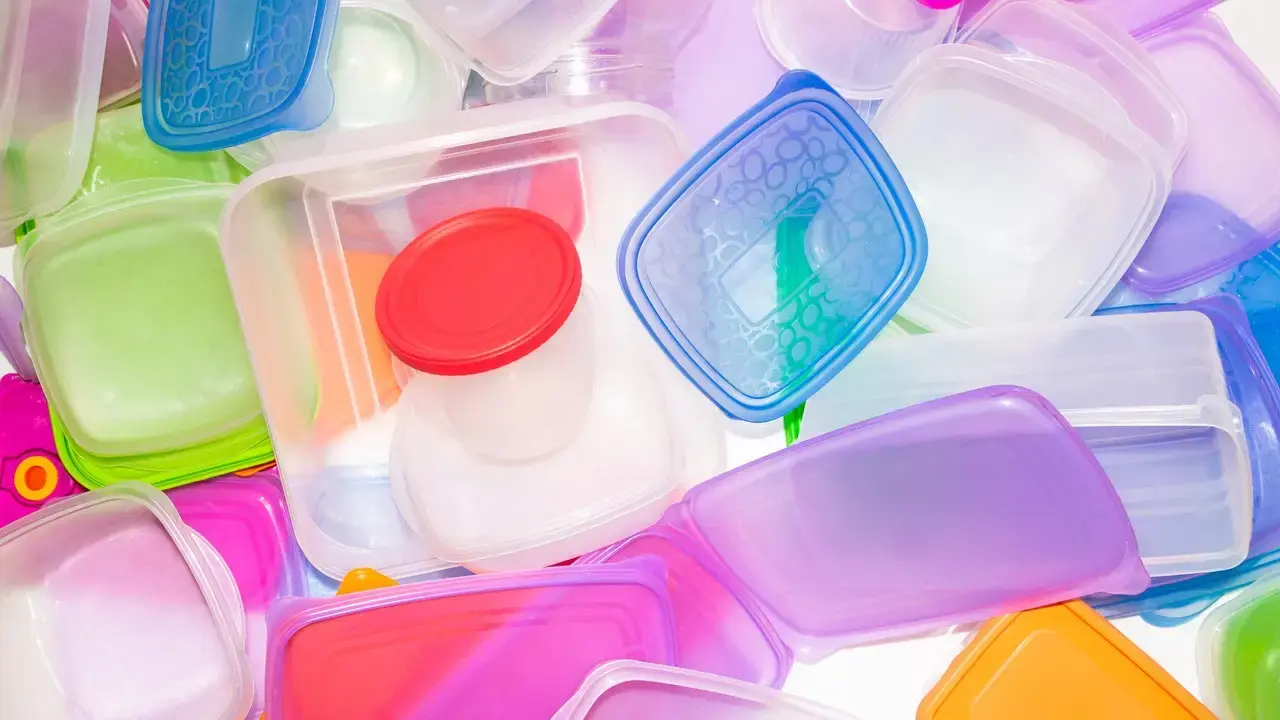- cross-posted to:
- science@lemmy.world
- cross-posted to:
- science@lemmy.world
That eliminates most of the frozen meals section. Before the jump in with “then don’t buy those”, you’re not wrong. It’s easy to point out the many things in society we shouldn’t be doing, but not quite as easy to step back from them all.
Sadly true. I’ve been known to warm those meals up just enough to transfer them to a plate or bowl, and then finish their heating. It doesn’t undo the plastic contact that happened when the food was prepared and packaged, nor does it help the with plastic waste problem, but it’s better than nothing. Meanwhile, I look for frozens that come in paper fiber trays instead of plastic.
When I find a packaged food that I like enough to buy again, I’ll sometimes email the company to let them know I would buy more if they replaced their packaging with something less toxic. My voice alone won’t make much difference, but if they hear it from multiple customers, perhaps they’ll put it on their roadmap. (This seems like a marketing opportunity, especially now that microplastics and other forever chemicals are getting attention in the news.)
Also, there’s always the option of cooking/buying a big batch of food and freezing it in single-serving glass/stainless containers. No plastic at all this way, and the food is often better. :)
Where I live sous vide are pretty common in the readymade dinner section - wonder if they’re better for you than microwaving and if we should maybe be doing that instead
Good article.
“Though various plastics are marked as microwave-safe—and plenty of plastic lobbyists have defended them as perfectly safe—the term is somewhat misleading. It’s simply referring to plastic types that won’t crack or melt when heated, not their chemical makeup.”
Wow. I honestly didn’t think much about microwaving stuff like tupperware before, but I think this convinced me to switch to glassware.
I started replacing my food storage containers with glass a few years ago. It’s not only safer, but also nicer looking and easier to clean.
I didn’t want my old plastic to go in the waste stream, so I use it for overflow dry goods, hardware storage, and household cleaning tasks.
We ALL need to do what you’ve been doing.
My household eliminated plastic and non-stick items. We’ve been using only cast iron and stainless steel for stovetop, glass and stainless steel for oven and mixing, glass and stainless for eating. Even the pets’ bowls are stainless steel.
Plastics and Teflon coatings are pure poison.
Pro tip for stainless steel: Bar Keepers Friend is an inexpensive, mildly acidic cleanser that makes short work of even the toughest cooked oils stuck to pans. Just be sure to wash & rinse afterward, so residue doesn’t end up in your food.
It also works wonders if you have spilled something on your induction stovetop and forgetting that wiping it away with a fabric rag, thereby melting the rag on the burner…
Basically, that shit will take off plastic, the irony with the thread lol
If you have anything stainless steel BKF is a must-have. It’s crazy how dingy my kitchen sink basin gets.
Is there glassware with lids that closes well enough to transport it?
I like my glasslock. Glass body, plastic/rubber top. They seal incredibly well, you can turn it upside down and shake and it won’t leak.
Just don’t microwave it with the top on. I just toss a damp paper towel over it before microwaving.
Yes, glass and stainless steel containers with air-tight lids exist. Some use a silicone or natural rubber gasket for the seal.
If you can’t find those, canning jars (Ball, Mason, etc.) have been around for ages, and you can always wash and reuse empty jars that once held food from the market. You can avoid food contact with the lid coating by keeping the jar upright.
When I need a microwave-safe lid, I find that a damp paper towel or upside down plate works well.
Jars
Ikea has plenty of options, with either plastic lids or bamboo and silicone (neither of which are microwave safe)
Any suggestions for food storage containers without plastic lids?
Compact: Fido jar, wide mouth Ball/Mason/canning jar, emptied sauce jar.
Large: Saucepan, dutch oven, stock pot. (These are cheap at thrift shops.)
Stackable: Mixing bowls with bamboo lids, steel lunch containers with clamp-on steel lids.
In a pinch: Any bowl with a plate on top.
Yeah I’m starting to think about this as well
Ok… but what about the plastic in the microwave that’s part of the microwave?
Ok… but what about the plastic in the microwave that’s part of the microwave?
I think a glass and steel microwave oven could look pretty damn cool, but until we have those, I simply try not to cook my food on the microwave’s surfaces. :)
What about the radioactive waves that touched my food?
Radiation isn’t always the same as radioactivity. Microwaves aren’t gonna cause you to mutate (they could boil the water in your body tho) or make your food irradiated. But I’m pretty sure the plastic is still plastic, and if all plastic is bad plastic then maybe we shouldn’t use microwaves at all.
When it was growing in sunlight, aka red shifted gamma radiation coming from an open nuclear reactor?
Meh. Gonna die anyways. I’m probably 40% plastic by now. Might as well bump it up.
deleted by creator
Damp paper towel.
I’ve always just used a bigger plate/bowl to cover things. They’re much easier to clean than any plastic lid.
This is a good question, already covered in the other comments.
I will add here that exploding food has been much less common since I figured out how to choose a reduced power level on my microwave. (But I still cover the food anyway.)
In the microwave, I always use the lid of a bigger glass bowl on top of my large, wide, glass, measuring-pitcher. It doesn’t fit perfectly, but I turn the lid upside down so it doesn’t slide when I carry it.
Pyrex/borosilicate dishes work pretty well here. Both Pyrex and IKEA do little single serving casserole dishes with a lid that work fantastic. Been using them for decades now
Alternatively you could upend a plate on-top of your bowl
I know plastic is scary but guys, you don’t need to replace your entire plastic container selection - you could just, decant your food into a different container before microwaving it? The microwave is what’s doing this, not the fridge.
I’d recommend getting a small borosilicate/Pyrex dish like This. I’ve been using two of them my entire life (did none of you get taught that microwaving plastic with food make it go funny as a kid?) And they last a good while. Provided you don’t drop them. I think IKEA sells them and I’ve seen them around in my local kitchen store in non-pyrex brands. Also they’re oven and dishwasher safe too!
Also I don’t reccomend hunting for vintage Pyrex here - old pyrex chips super easily and constant use and slamming the lid on will chip the edges to hell and back. The European formula isn’t actually the same as the old one so it’s fine but unless you like glass chips in your cupboard and super sharp edges, don’t go for it.
The microwave is what’s doing this, not the fridge.
Nobody said the fridge is doing this, but it doesn’t prevent it, either. It happens through contact. The microwave accelerates it.







